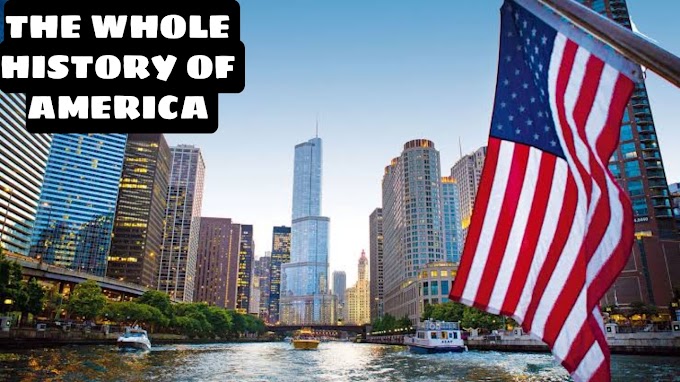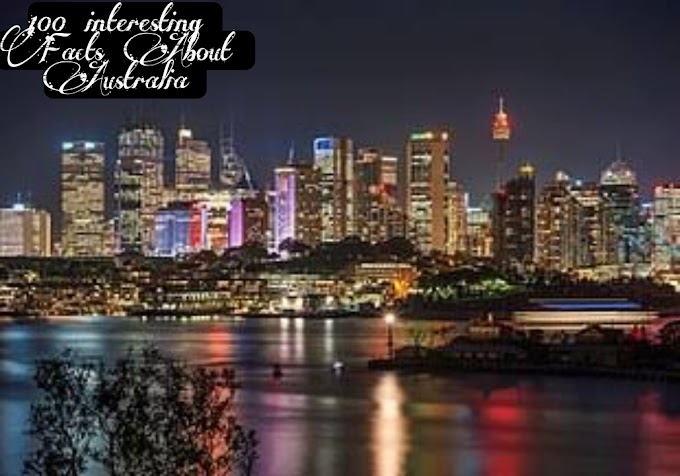THE WHOLE HISTORY OF CZECH REPUBLIC
(CZECHIA)
Hello Friend:
Welcome to Countries Facts so today in this Article I will show you the whole history of Czech Republic now let's sorry I have to say it let's check it out shall we the land which modern Czech borders encircle has been inhabited for a long long time what you're looking at is davina mountain which is where this plus-sized lady was unearthed declared to be the oldest ceramic item in the world a notable early culture on cheeky and soil was the only editor who were rather adept at metalworking they made several stone and terracotta tablets which no one can read and their purpose is unknown around 350 BC the Celts began migrating into the land specifically the tribe known as the boy I who allied with Hannibal in his war against Rome the boy I gave their name to Bohemia the biggest chunk of Czechia that bit is Moravia named after the Madhava River and it's Czech Silesia anyway after 9 BC Germanic tribes began moving in and taking over but during the disordered time of Western Rome's collapse many Germans moved out and were replaced from the 6th century by Slavs from the east who were attracted by the good soil big forests non frozen rivers and already established roads and trade routes in function these Slavs were gradually absorbed into the population who became known as Czechs the Slavs though good warriors were not United here and therefore was subjugated by invading Avars from Central Asia they eventually did unite however in a rebellion in 623 under a Frankish German leader called samo and the Avars were ousted after some Oh disunity returned and this time the Franks under Charlemagne invaded Czech lands in 805 subduing the inhabitants into paying tribute Frankish and irish missionaries spread catholic christianity and Moravia began to grow as a power of great Moravia reached its height and thus fought the block after whose reign the state was torn by infighting and weakened by a Hungarian invasion meanwhile power was increasing next door in Bohemia under the pressure mislead the dynasty one of whom was good king wenceslas who is the subject of a famous carols he was murdered in a plot hatched by his own brother and soon became venerated as a saint his brother's conquests included conquering Moravia and in 1002 the Duchy of Bohemia joined the Germanic Holy Roman Empire becoming a kingdom in 1198 under autocar the first Germans began moving in and the country strengthened and the Mongols failed to conquer it in 1241 a lot of this strength was due to the rain of Autocar ii called of the iron and golden king he enriched and expanded the kingdom beat the Hungarians crusaded against Prussian pagans built towns and fortresses like this and this and while he dreamed of becoming Holy Roman Emperor he died in battle in 1278 while the House of Luxembourg took control in 1310 the 14th century would see Czech history sail into a Golden Age with Charles the 4th who claimed ancient Czech blood on his mother's side he became Holy Roman Emperor and Prague became the imperial capital which he adorned with churches castles bridges and universities indeed Charles played no small part in making proud what it still is a top contender for the most beautiful city in the world the Black Death which ravaged so much of Europe found its odious site a little blunted in Bohemia but about 10 to 15 percent of Czech people died from it several seeds of Protestantism sprouted in Czech lands with the theologian Yan hosts who angered at the corruption in the church and inspired by John wick lifts ideas such as having the language of the people used in services as opposed to Latin began preaching against the shortcomings of Catholicism pus believed the Bible was more important for salvation than church rituals and amassed a large following of Hussites us was eventually captured and burned at the stake but it didn't end there the Hussites ignited a revolution that saw peasants and farmers fashioned into a lethal and effective fighting force under men like yan jischke an intelligent innovative tactician who ranks among the greatest generals in history the Hussites defeated five Crusades launched against them and the Pope finally decided on diplomacy and the frenzy died down and reforms made but war weakened the land and just under a century later in 1526 the Catholic Habsburg Austrians took over the Czechs were not happy about it and this unhappiness materialized in 1618 when some Protestant Nobles angered at Catholics closing Protestant churches marched into Prague Castle and through to officials and a secretary at the window they landed in a mound of manure in the moat below but this act helped spark the ruinous 30 Years War the Protestant Czechs were crushed by the Catholic Austrians and in 1627 it was decreed that Protestant Nobles had to either accept Catholicism or get out about 20% got out and thus Catholics regained Czechia the years following saw German culture triumph over Czech plague revolts Prussian invasion famine and more war Napoleon's famous victory at Austerlitz took place in Czech lands not far from Brno Napoleon effectively ended the Holy Roman Empire and Bohemia became part of Austria the 19th century saw the reawakening of the Czech national spirit with Czech writers and composers drawing inspiration from Czech history and culture in their hopes to inflame a move towards independence listen to this excerpt of the Vosges arc and tell me you can't hear the seal [Music] meanwhile Austria was slipping losing a war against Prussia and losing the first world war the Austrian Empire collapsed and the Czechs joined their brethren in Slovakia in forming independent Czechoslovakia with Tomas Masaryk as first president Czechoslovakia soon became an industrial powerhouse but then the Nazis invaded and took over with the aim of Germany fyodor thousands of Czechs were killed and the Czech Jews pretty much annihilated and while the Nazis were defeated at the end of World War two they were replaced by the Communist Soviets and Czechoslovakia became part of the Eastern Bloc that shivering shelf of satellite states pretty much under Soviet rule now there were a lot of Germans in Czech lands but they were kicked out and times were bared and there wasn't much freedom and by 1968 the people had had enough and protested on mass in the Prague Spring encouraged by the reforms of Dubcek then the Soviets sent in tanks and half a million troops to brutally quash the revolt in an invasion that made even the most hardened left-wing Western intellectuals squirm the years passed and the older generation of dissidents joined the younger in the peaceful 1989 Velvet Revolution which saw the collapse of communism and parliamentary democracy restored and the separation of the Czech Republic and Slovakia with the beloved writer vat Slav Havel as Czech president economic reforms lifted the Czech Republic into prosperity it joined NATO in 1999 and the EU in 2004 and while politics has been a little tempestuous the Czech Republic has rapidly achieved a very high Human Development Index a safe and peaceful land whose picturesque market squares and green fields and jovial beer festivals give little indication of the great suffering this land has endured a land that has produced immense richness in literature in music in sport in art in science in cinema a land that welcomes more than 20 million tourists a year that's the Czech Republic and that's all from me for now bye bye.

















